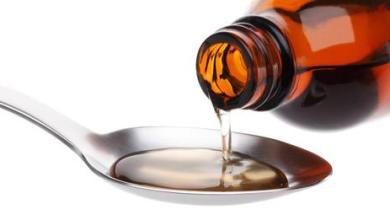WAHO Selects 5 Firms To Manufacture Vaccines For West African Countries

The West African Health Organisation (WAHO), an organ of the Economic Community of West African States (ECOWAS), is working with five potential vaccine manufacturers to produce vaccines including COVID-19 vaccines for the sub-region and export to other countries around the world.
Some of the companies have set August and September this year to start building their plants and subsequently start manufacturing vaccines in 2022.
The 5 companies
The selected potential manufacturers are DEK Consortium and Atlantic Life Science from Ghana, Innovative Biotech and Bio Vaccines of Nigeria, and Pasteur Institute in Dakar.
Sponsors
Institutions that have made commitments and sponsoring the local vaccine manufacturers include Bill & Melinda Gates Foundation (BMGF), West African Pharmaceutical Manufacturers Association (WAPMA), United Nations Economic Commission for Africa (UNECA) World Health Organisation (WHO) Africa Regional Office, and Mastercard Foundation
The Director-General of WAHO, Professor Stanley Okolo, announced this in Accra at a high-level meeting to consider efforts being made to boost vaccine manufacturing in the ECOWAS region.
This meeting, which is being held in Accra, is being done in collaboration with the Africa Centre for Disease Control (CDC) and vaccine manufacturers from the sub-region.
Strong collaboration
Prof Okolo said, the objective of the meeting is to build a strong collaboration between these manufacturers and not to create competition among them.
Fill-and-finish agreements
He explained that some of the potential manufacturers had signed agreements with global vaccine manufacturers to do fill-and-finish and later manufacture their own vaccines.
He said presently, only one per cent of vaccines used in Africa are produced locally.
Prof Okolo noted that the vision is to achieve a 60% increase by the year 2024, stressing that the continent has all the rudiments and building blocks to make this happen.
ECOWAS boosting medical supplies in the sub-region
He explained that given the urgency in the sub-region and the vulnerability of the ECOWAS’ population to the COVID-19 pandemic and other diseases, the ECOWAS Commission and WAHO under the ECOWAS Authorities of Heads of States and Governments are facilitating efforts to boost local vaccine manufacturing and other medical supplies in the sub-region.
Improving infrastructure and human resource capacity he said, cannot be achieved without the needed improved infrastructure and human resource capacity.
According to him, the COVID-19 pandemic had shown that low- and middle-income countries have had to rely mostly on donations of vaccines from rich nations.
Prof Okolo, however, explained that research had shown that building continental and regional manufacturing capabilities will contribute to pandemic preparedness and strengthen the response to feature outbreaks.
Currently, he said West Africa requires some 370 million doses of COVID-19 to meet the 70% vaccination target.
He appealed to the manufacturers to openly share their knowledge and expertise and effectively collaborate with one another to achieve the expected breakthrough in vaccine manufacturing in Africa.
Political will obtained
He said one important aim of WAHO is obtaining the political will and the go-ahead of ECOWAS Council of Heads of States and Governments to bring together manufacturers, partners, external collaborators, and regulators to advance the manufacture of COVID-19 vaccines.
“Some of the things we have done on the health side is the harmonisation of the regulations so that you don’t have to go through 15 different countries in order to register a medicine, but you go to a central platform,” he added.
The World Health Organisation (WHO) Regional Director for Africa, Dr. Matshidiso Moeti, in a speech, read on her behalf, pledged her office’s commitment to support ECOWAS.
“We want to confirm the commitment of WHO regional office for West Africa, in collaboration with WHO headquarters, our great commitment to support member states to strength capacity for local production in the region and support member states,” she disclosed.
Dr. Moeti noted that the COVID-19 pandemic laid bare the over-reliance of low- and middle-income countries on donations from rich nations.
Chairman of the Presidential Vaccines Committee, Professor Kwabena Frimpong Boateng, said Ghana was working closely with Rwanda and Senegal in the development of the COVID-19 vaccines, which is expected soon in the country for packaging and distribution for commercial use by 2024.
He gave some highlights of Ghana’s progress regarding its vaccine development efforts, citing the expected completion of the National Vaccines Institute infrastructure by the third quarter of 2022 to coordinate the development and manufacturing of vaccines.
Others include strengthening collaboration between existing research capacity enhancement of the Food and Drugs Authority to attain International Standard Organisation Level Four of its laboratory performance, and the enhancement of human resource capacity base for research, management of manufacturing plants, as well as stakeholder engagements for the effective support of government efforts.
By building continental or regional manufacturing capabilities, WAHO hopes to boost pandemic preparedness and strengthen the response to future outbreaks.
As part of the programme for the two-day meeting, WAHO hopes to find out how manufacturers will identify particular vaccines of interest to produce.
Also up for discussion will be the engagement of contract clinical research organisations (CROs) and technology platform of high yield, high-quality products using the most cost-effective methodologies available, as well as clinical trial centres.
Given the urgency in the region and vulnerability of ECOWAS population to the COVID-19 pandemics and other diseases, the ECOWAS Commission and the West AFRICA Health Organisation under the decision of the ECOWAS Authorities of Heads of States have pledged their support for the establishment of a robust vaccine production capacity in the ECOWAS region.
Source: 3News








